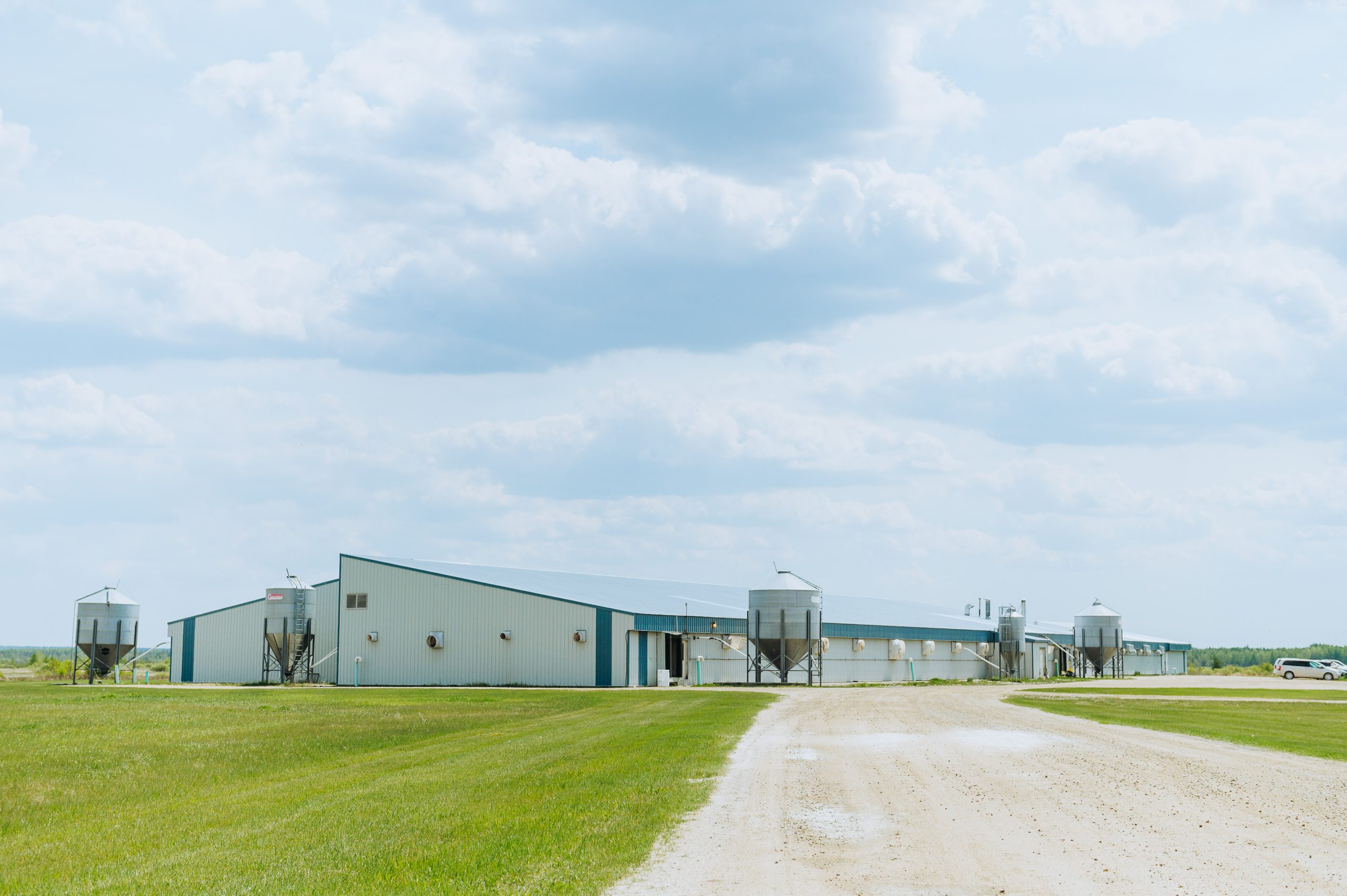Manitoba’s hog sector future-focused on sustainability
September 17, 2025
763 words | Read time: 4 min
Back To Newsroom

If you’ve ever been camping, you may have heard of The Campsite Rule. The number one rule of camping, be that in a campground, a provincial park, or somewhere in the backcountry, is that you leave the space you were in better than you found it. That means taking steps and acting in ways that minimize any negative impact on your surroundings, allowing other campers to enjoy nature and the natural environment around them.
Those who work in agriculture across the country, including Manitoba’s hog sector, take that rule to heart. For agriculture to continue moving forward, farmers must be good stewards of the land. That means growing crops, raising livestock, and moving what they’ve grown and raised to market sustainably, thereby leaving a legacy to pass down to the next generation of farmers.
Manitoba Pork and hog farmers around the province are committed to advancing sustainability across all facets of hog farming and pork production. The organization’s new Sustainability Framework focuses on five key pillars that guide our efforts to ensure economic resilience, environmental stewardship, community well-being, animal care, and collaborative growth.
“Sustainability in agriculture extends beyond a strict focus on environmental metrics,” said Jean-Michel Couture, partner and president of Groupe AGÉCO, the organization that helped Manitoba Pork develop the Framework. The Montréal-based leader in agri-food economics and corporate responsibility has helped national companies and organizations for over twenty years, including Bell, Air Canada, Cascades, and the Canadian Pork Council. “When we evaluate a sector’s sustainability, we are really asking: can this system thrive in the long-term while supporting the people who depend on it, the communities it operates in, and the natural resources it relies upon? Sustainability is about ensuring the long-term competitiveness of a sector by balancing all forms of ‘capital’ that businesses – here hog operations – rely on.”
Clear goals and commitments support each of Manitoba Pork’s five sustainability pillars, guiding efforts and communicating progress to producers, stakeholders, and the public. The Framework outlines Manitoba Pork’s role, potential targets, impacts on producers, and areas where collaboration with partners is essential for driving meaningful change.
Take, for example, the organization’s commitment to community well-being. Manitoba Pork and its farmers have a long track record of supporting community causes, be that through a partnership with Harvest Manitoba supplying freezers and ground pork to urban and rural food banks, providing a source of well-paying, high-quality jobs in rural areas, and collaborating with the Association of Manitoba Municipalities to ensure community or sector needs are addressed. These collaborative efforts are a measure of sustainability, leaving cities and towns across the province better than they were before.
One of the key pillars of the Framework is to maintain efforts to reduce the greenhouse gas emissions of pork production through collaboration and engagement with sector partners and stakeholders. As a result of increased efficiencies, the environmental footprint of raising pigs has decreased significantly in recent decades, including reduced water and energy use, and lower carbon emissions. The hog sector knows that with research and a steadfast commitment to continuous improvement, pigs can be raised even more efficiently, all while maintaining stringent animal care standards.
“In developing its Sustainability Framework, Manitoba Pork went to great lengths to ensure its commitments had identifiable, positive, and practical impacts for producers that enabled progress without demanding progress,” said Couture. “This Framework not only sets a course for continuous improvement but also seeks to identify how producers and other key collaborators have maintained efforts over the years to ensure Manitoba’s hog industry is competitive, efficient, and responsible.”
For generations, farmers have managed our natural resources and provided food for the world, all from right here in Manitoba. Manitoba Pork, along with other agriculture organizations, are committed to empowering those who will take the sector into the future with a sustainable path forward.
“Back in 2011, Manitoba Pork was one of the first commodity groups in Canada to publish a sustainability report and roadmap,” added Couture. “That’s evolved into Manitoba Pork’s new Sustainability Framework, notably contributing to a larger transformation in today’s Canadian agriculture, where commodity groups are moving from isolated efforts to coordinated action. When one commodity group raises the bar, it creates momentum that elevates sustainability practices across the agricultural landscape.”
Leaving things better than you found them is a commitment not only to protecting something right here and right now, but it’s also a commitment to the next generation. Guided by a dedication to continuous improvement and a high standard of care for both livestock and the environment around them, Manitoba’s hog sector is at the leading edge of sustainability in agriculture.
To learn more, visit manitobapork.com/sustainability-framework/